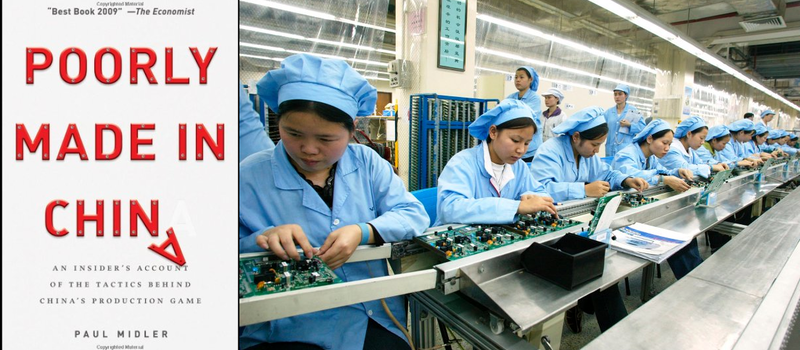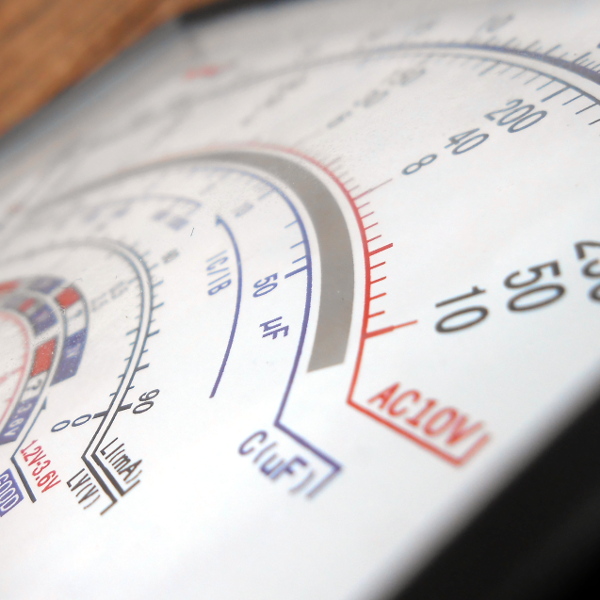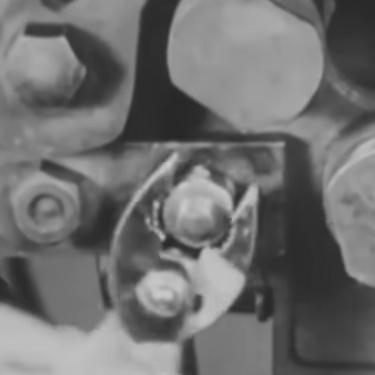This book is scary, and honestly I can’t decide if I should recommend it or not. It’s not a guide, it doesn’t offer solutions, and it’s full of so many cautionary tales and descriptions of tricks and scams that you will wonder how any business gets done in China at all. If you are looking for a reason not to manufacture in China, then this is the book for you.
The author is not involved in the electronics industry. Most of the book describes a single customer in the personal products field (soap, shampoo, lotions, creams, etc.). He does describe other industries, and says that in general most factories in any industry will try the same tricks, and confirms this with experiences from other similar people in his position as local intermediary for foreign importers.
No Free Lunch
The gist is this, though: China isn’t as cheap as it sounds, and at every possible chance the manufacturer will do whatever they can to turn a greater profit. This involves raising the prices to the importer at the last minute, cutting corners incessantly, making unilateral decisions on changes to the product, lying about their capabilities and connections, selling extra or rejected product to other markets, and all while not being able to be held accountable or responsible for problems, putting all the cost and risk on the importer. The picture the author paints is of a country of con-men.
If you want to skip the book, the thing you should take away from it is that everyone is trying to make money, and if you are hiring someone to make something for you, you need to accept that they will turn a profit from that. How they turn a profit will either be obvious, and will show up in the amount you pay for your product, or it will be non-obvious, and will show up in quality fade, counterfeit parts, randomly increasing costs and delays and changes. In China, the author believes that the latter is standard practice.
Poorly Made in China is a non-fiction thriller novel. It was published in 2009, so things may be better now. The main character is an American living in China whose job is to help foreign companies navigate the challenges of manufacturing in China. You might think “maybe he is motivated to drive business for himself by painting a picture of all the awful things that can happen,” and though we haven’t asked the author to confirm, you’d probably be right. He does mention, though, that he took on the risk of not being accepted back into the country after saying negative things, so with such risk associated with him publishing the book, maybe there is a stroke of altruism in it.
“Oh No They Didn’t!”
If you’re looking for an afternoon filled with more thoughts like “holy crap,” “WTF?,” and “oh no they didn’t” than an episode of Real House Wives, then go ahead and read this book. If you want to scare yourself into never wanting to so much as look at China on a map, then this is the book for you. If you are resigned to manufacturing in China and you’re looking for tips on how to avoid all the terrible things he describes, the author specifically mentions in the foreword that this book doesn’t have solutions. If you already manufacture overseas, and you’re just looking for someone else to share the same experiences you’ve probably also had, then maybe it would be a good idea to have a few beers and drown some sorrows with this book.

















The Essential Guide to Shenzhen covers a lot of the problems with production too. Even Lady Ada in her review of the book confirmed many of the problems regarding production and sourcing in China.
Review: https://www.youtube.com/watch?v=rAXNv_rNGcc
Book: https://www.crowdsupply.com/sutajio-kosagi/the-essential-guide-to-electronics-in-shenzhen
Are you talking about bunnie’s travel guide? While that’s still a good and useful book, it is in no way comparable to Poorly Made in China.
Poorly Made in China is a book on Chinese culture with the underlying theme of (eventually) selling Mr. Bubble to WalMart. There were a few times when the product came back, and the mint shampoo smelled like the lavender shampoo. The lavender liquid was a little bit cheaper, so the factory just made *everything* smell like lavender. There’s a hundred stories in Poorly Made, some of which include some ‘nighttime entertainment’ because I guess the phrase ‘comfort women’ still has a subtly racist undertone. The Author out-chinesed the chinese by filling up their warehouse with bottles and then discontinuing that packaging. It goes on and on and on, every time giving the reader a small insight into Chinese culture.
Bunnie’s book will tell you how to get from the hong kong airport to the electronics market. Still valuable information, but not on the same level as Poorly Made. That said, there’s one book I’d like to have with me in Shenzhen, and it’s not Poorly Made.
Bunnie has another book coming out shortly, (EDIT: published by No Starch Press) that’s more along the lines of Poorly Made. I’ve given the pre press of it a quick glance, and it’s more of the kind of book you read on the plane to hong kong, and not while you’re in shenzhen. I’m going to be doing a review of that, but it really can’t be compared to The Essential Guide to Electronics in Shenzhen.
“I guess the phrase ‘comfort women’ still has a subtly racist undertone.” last I heard it had the specific meaning of “forced to serve as an unpaid prostitute for the army”, Originally the Imperial Japanese Army.
“EDIT”?! What is this Magic!
/Right here.
Caveat emptor economics is universal.
In the USA, you can also try to navigate the corporate lobbied legal barriers to market entry that created synthetic monopolies.
Welcome to business.
Yep, we see the same stuff with UK based manufacturers. They cut corners, substitute parts, change things without telling us to save a few quid, screw up the soldering… We had one recently that just sent us an invoice for “cleaning” some grey market used parts they bought because they were obsolete. We wouldn’t have even been informed if they hadn’t tried to bill us!
It’s the same everywhere. If you go for the lowest cost option, you get the lowest level of service and maximum cost cutting. You can either pay more or spend more time dealing with the issues and developing a really, really robust testing system that can detect when they made the copper a little thinner so that the battery charger circuit catches fire (hint: thermal cameras).
Have been cheated by Europeans, Americans AND Martians. Have had very good experience (on some medium sized imports) with Chinese manufacturors and vendors.
It’s all quite … well diffused. Putting the blame on China alone sounds like a personal vendetta.
Corruption is everywhere, but the less power you have and the lower the margins the more corruption tends to appear. Combined with the reason people go to China in the first place and you have a perfect storm.
You have literally no recourse when things go wrong in China. A UK manufacturer, or one in the EU? I can threaten legally. China? No hope. Literally the one thing you have is that you can shame them if they get it wrong. And that’s not much.
I tend to make it myself, rather than outsource.
I want to hear more about your business dealings with Martians.
Waste of time, that place is an ecological disaster now. The factories were exporting canned air and bottled water at such an extreme rate but the money kept rolling in. So here we are. About the only thing they are used for these days is a target for over-sized ballistic objects and an advanced robotics garbage dump.
They didn’t export all their air. If they had not stopped the planet’s internal magnet field to save money on mu-metal, less of their atmosphere would have been stripped away in the solar wind.
He got ripped off by Matt Damon.
We all did.
I read that as “Got ripped off by Marc Wattney.” I suppose you’ve gotta do what you’ve gotta do to stay alive…
Trust me the customer on the import end is out to make profit too. The primary reason they go for overseas manufacturing is to cut costs and maximize their profits. Getting away from stifling regulations is another reason….but it’s all in the pursuit of profit.
Not sure how you can get away from stifling regulations by buying abroad as the manufacturer or importer still has to ensure the same regulatory compliance no matter who makes it.
Cutting costs as much as possible is often necessary due to the demands placed on manufacturers by distributors who clearly want as much profit as possible. It is disheartening to have to sell your product for quite a small profit, leaving very little left for re-investment after paying your overheads when your customer then sells it and makes a massive profit.
Also, some of us need to have our product made as cheap as possible and not always to maximize our profits but sometimes to minimize our losses and tech support requirements!
My last design is sold for virtually no profit and in some respects could be seen as not being worth the R&D expenditure as current and future sale predictions say it will take 10+ years to recoup the cost of development and testing alone BUT if we did not sell it for so little, our customers would (and used to) buy cheap rubbish PSU’s which causes massive problems with reliability, noise and damage to our measurement transducers when reverse wired.
Hence we now get none of the above issues of measurement instability or blown equipment when customers wire our sensors up wrong if they are using our ‘low noise, soft start, current limiting, overload detecting’ PSU versus a cheap generic switch-mode PSU.
Possibly what RoboMonkey was getting at is OHS/WHS (work health and safety) regulations. The Chinese don’t have a particularly good track record on that one. WHS is pretty expensive. A factory can run much lower overheads without it.
So yes, same regulatory compliance as far as EMC and safety of the end product… although safety compliance doesn’t seem to mean much – think cheap phone wall wart chargers… Perhaps he is onto something…
Dave, I’ll buy them off you if I know they’re good.
Improve your margins by selling direct via your website, it’s my advice. Be slightly more expensive than your resellers, but offer something extra, or a discount on it when bought with your transducers.
“Poorly Made in China is a non-fiction thriller novel”
Uh. . . if it’s non-fiction, it’s not a novel. Novels are fiction.
I used novel in the sense that it has a main character, a few other characters, and is a series of events with an arc to it, told like a story. You may be correct on a technicality, but… :P
A very novel comment. ;-)
I believe what you are saying is the author has constructed a story, narrative, etc and is not simply listing instances and details. In other words, it’s less dry reading and more couched in a readable fashion. However, Google defines a ‘novel’ as “a fictitious prose narrative of book length, typically representing character and action with some degree of realism.” Note the -fictitious- aspect there, very important.
At what point does something switch from being a novel based on events, to being fiction, versus a novel that’s almost a documentary?
Non-fiction Novel is a thing though:
https://en.wikipedia.org/wiki/Non-fiction_novel
So is the notion of anyone submitting a wikipedia article for anything. https://en.wikipedia.org/wiki/Reliability_of_Wikipedia
oh wait…
You’re either autistic or being willfully obtuse.
Woooosh!
I’ve been involved in products manufactured in USA and in China, our driving decision is cost of manufacture, and bareable market price of the product. Believe it or not, the number 1 issue, is the bareable market price. We have seen people say they don’t make things like they use to, well people do, people just don’t want to pay for what it takes to do it. Let’s look at some examples:
Note: bare simple examples:
Oak handmade chair vs cheap China chair, both are made, and most people buy the cheap chair because they think paying $800 for a chair is too much.
Now the other side, manufacturing, we have a 120 tool horizontal mill, but there is two steps to get to the controller. OSHA made us put in a rail and safety fall harness that the operator wears, he has to clip on step up, step down unclip, so much wasted time and effort for a 28″ platform. Because of all this we incurred charges as well as lower production numbers, thus the manufacturing cost goes up.
Perhaps if people had more spending power they wouldn’t mind buying a quality item?
Couldn’t you just move the control panel?
The issue I find with your comment is that you can pay $800 and get a cheap China chair with an oak veneer that you could have bought for much less. At least when you buy cheap chair you know what you are getting, and you are not out of $800. If it turns out to be any good, it’s a plus.
You go out of your way to pick a national brand with a good reputation, pay more, and it’s only after the fact that you find they now are a shell, a ghost of what they were, and either import crap from China, or the brand name itself was bought by a Chinese company to coast on the momentum it had achieved.
Just yesterday I was looking for DE razor blades made in my country, I found out not only the factories located here had closed over a decade ago, but that a national soap brand had moved manufacturing more recently, to Mexico. I check on the back of the packaging, sure enough. I won’t be buying from that brand anymore, making soap is easy and cheap enough to do it myself.
Recently finished another book, title is “What’s Wrong wth China.” If you liked the first book, you may like this one even more…
https://www.amazon.com/dp/1119213711/ref=cm_sw_r_cp_awdb_z5JcAbYTDH138
Book is available for pre-order.
Thanks again for keeping the conversation going!
I learned the hardway to not trust Chinese socket wrenches for any sort of serious work such as removing a 27mm bolt that has been in place since the Reagan administration.
Well, communists hate Reagan. So wrench just followed the Politburo line.
People have every reason to hate Reagan and not just communists. Mainly the allowance of free market trade IE corporate tyranny.
ALEC
Oh geez, can we not do this here?
THAT’S PATRONIZING AND RACIST!
“place further emotionally driven gibberish here”
Comments driven from the concept of identity politics are illegitimate both from the left and right.
Go back to your home /b/
I agree. It was supposed to be a joke. As a true and amusing note, one of my relatives gave an old horse name Reagan in the 1980-ies. Not because he liked the guy :)
I agree on Internet Explorer. But what did Reagan have to do with it?
B^)
The title should read “Poorly Made in {insert Country, State, Culture here}.
The author of the book was most familiar with China, and throughout offered hypotheses on why the Chinese culture and history enable and explain the things he saw.
Why publicize this propaganda-evoking post? Let us not forget the horrendous manufacturing conditions and almost slave-labor scenarios of the US for the longest amount of time. Besides, Yes their wages may be low, But their cost of living is SIGNIFICANTLY lower than that of the US.
We can go on and on about politics.. But all and all, If somebody has sincerely has quality-control complaints. Why won’t they take the issue up with a government hierarchy when it comes to regulation on transfer of labor force overseas? And not the Chinese manufacturers themselves?
Yep. “made in America” comes below “made in China”, because the replacement will be cheaper in the latter case
I work in a machine shop and have learned if you spend more on the made in USA part or tool, it will perform better and last longer thereby offsetting any initial savings. To be fair that statement assumes the product is being used correctly, a USA endmill can be killed just as easily as a Chinese one if it’s being abused. If I want a product to be long lasting I go with made in USA, if I know it’s go to get torn up I go made in China.
They work under conditions and hours that would never be allowed in the US or Europe and pretty much ignore all environmental laws.
If you did what they do in China in the US such as having factory workers put in 80 hour weeks and dump waste directly into the river you’d deserving have the EPA, OSHA and several other alphabet soup agencies wanting to nail your hide to the wall.
Environmental laws? There are numerous places within the US
that industrial waste is dumped. The skukhill river, and from what
I herd Silicon Valley’s ecosystem cross-contaminated too.
However under Carter’s administration illegal was indeed
strictly prohibited.
Illegal dumping*
You sound like one of the paid Russian anti-US shills popping up on geek websites of late… if you’re going to not make it obvious, try learning to spell Schuylkill River…
@Yarr
Agreed I seen people like him on other forums spreading FUD.
+1 your comment.
@Yarr
Yet another speculative argument. I could say Hillary hires paid shills too, Though I have no evidence to prove it.
But thanks for the spelling correction.
Also, If I wanted to be a shill. Wouldn’t it be more logical to pick a non-russian name?
Foreword, not forward ;)
Good catch. Fixed. Thank you.
Can we just move 4 word from all this?
B^)
Market has already decided: Chinese goods currently have the best quality/cost ratio.
“Market”? Yeah, I didn’t get that memo. If you meant “Marketers”, you’re spot on.
remember what happened with sparkfun verses fluke? why not do the same thing for shoddy product including but not limited to takata air bags
Last month i spent my second stint working in a factory in China for a few weeks, it truly is amazing sometimes what they do there. If you ever have the opportunity, go to a tier 3 or tier 4 city factory and go work there. It will open your eyes! Gonna read this book and see if it compares to my experiences.
Nothing you’ve said provides any polarity identifiers. It could easily be read as a very positive or a very negative comment about Chinese manufacturers.
Confucius said “You gets what you pays for”.
I scrolled to the bottom to say that, should have been the top comment as it’s kinda obvious yet so very true.
Also see: UK car industry in the 70’s. So many scare stories from old production line workers on the classic car forums.
Well, now we know who settled Ferenginar.
Seriously? No one got that?
We got it.
Childish, I know, but I want a “like” for my silly jokes. Okay, I’ll go back to 4chan now…
Heck, even a -1 would be preferable to ???????????????????????????? {sniff}.
ok, -1.
are you happy?
SQRT(-1)
China also cuts a lot of costs because the manufacturing requirements are so much lower.
I’ve been working in manufacturing for the last 20 years, and that’s always been the biggest problem in the three plants I’ve worked in regarding competing with China:
We have to meet all these environmental regulations, and China doesn’t GAF. It’s outstanding the cost differences there – their equipment is cheaper and easier to maintain (no pesky air quality concerns mandating functioning afterburners, cats, and such), their materials are cheaper (Nobody cares what goes in those plastics), their processes are more efficient because they don’t need to be clean.
It makes a huge difference.
Well yeah when you can dump your toxic waste in the nearest river or landfill, spew as much toxic air pollution as you wish and your materials can be laced with all sorts of materials toxic to human beings, you will save lots of money and the consumer ends up with a poisonous product.
Oh yeah you also end up with a polluted land, not that you care.
Apparently, most consumers don’t seem to care either.
If a factory makes the air stink a little in their town while making a really tasty Siracha sauce, people get up in arms about it. IIRC, the Siracha plant was there first.
However, if a factory decides to dump toxic sludge into the nearest river in a country on the other side of the world, it’s all good as long as that plastic necklace is under $1.
My employer has several sites in Asia (mostly China), several in EU, and three in North America.
Two of the three EU sites are magical – old world craftsmanship, and a versatile and efficient work force that are masters of outside-the-box thinking. If only the idiots in Brussels were as effective…
The China factories are audited for ISO14k stuff, and seem to comply with labor and environmental regulations. Employees do not seem stressed or unhappy, and typically work less than 10 hr/day. The Chinese workers are effective for well-documented products where there are well-written ATPs. Perhaps the major difference is that my employer’s Chinese factories only work for ‘us’, while the book seems (dunno, have not read it) to address contract manufacturing and external supply chains.
The factory that scares me most is the Mexico factory – routine governmental graft and incompetence, corruption and nepotism among many (probably most) workers and managers, deliberate sabotage of product when they do not get their way, and that universal reply received after each ISO audit – “We do not like to be criticized…” And the typical Mexico worker never wants anything to change – total lack of versatility.
There is a glimmer of hope for my employer as the corporate office has granted a budget to shut down most of the Mexico site and add another Asia site within next few years.
As a Mexican looking to get some hardware done, I am pondering if manufacturing locally is worth it. I agree with your comment, specially the lack of versatility part. Could you share more details about your experience with the mexican factory? Some of us may find it useful…
I did business and lived in Asia for many years. It’s often helpful to look at the commonality of people than differences at a point in time. In the west, we have proved time and time again, people will exploit any opportunity offered to make as much for themselves as they can. People in China do exactly the same thing.
These days, the enormous wealth in the west can mean these behaviors can lead to even catastrophic results. Sub-Prime ring a bell, anyone? All the rules that make manufacture so expensive in the west are there because people previously exploited worker safety, environment etc to make more money for themselves.
So understand people are the same everywhere and you’re halfway there. The other half is the difference in operating environment. It’s taken centuries for the west to stumble towards its current imperfect versions of democracy. We assume institutions like independent judiciaries, police, press and armies. How did the people in the west behave when this was not the case.
And a parting word on Capitalism. Most of us working Joes in the west are the result of a few generations bred on looking after someone else’s money. However, The Chinese, who were conducting commerce when the west was still painting caves, are very much based on looking after their own money. Consider all the implications of that.
Now the crazy things we see are still entertaining but make sense.
“All the rules that make manufacture so expensive in the west”. Not all. A great many of the rules are there to give power and control to government, special interest groups, and make money for union officials and the politicians they support.
This disapoints me.
There are zenophobic overtones in the article.
You get what you pay for and you can get ripped off / cheated anywhere in the world.
The real problem is the race to the bottom to get the cheapest possible product to sell on at a fat profit. People pretend to care where their shit comes from in reality no one cares as long as they get cheap stuff.
Personally, I try to keep a Xen perspective on all this stuff.
+1!
BTW i think we should clarify what we are talking about: Electronics or “soap, shampoo, lotions, creams, etc.”
I have no problem buying cheap chinese electronic, of course you get what you pay for but if you are a little attentive the “bang per buck” is usually very good for hackers. For example an USB-serial-thing is 10$ @adafruit, like 2$ (or even less) in China shipping included (if you are not impatient). On the other hand i would never buy soap etc from China, because yeah, you don’t know what nasty chemicals may be inside… I suppose with european products it’s better but well, who knows…
that 2$ USB-serial-thing usually ends up being badly counterfeit FTDI clone, of if you are lucky on of their original designs (full of bugs and with “quality” software)
There are other chipsets than FTDI. This http://www.dx.com/p/pl2303hx-usb-to-ttl-converter-module-149859 looks quite good (but don’t have one to test).
I have several of those. They work quite well. FTDI chips aren’t used in many Chinese modules these days. There are other alternatives.
That’s something that caught me out when I bought a cheap clone Arduino. The FTDI drivers you get with the Arduino software don’t work. Was a bit confusing at first, but it’s just a matter of getting the right driver and installing it, then you’re off and away. AFAIK the Arduino software just talks to it as if it’s a serial port anyway.
@Mark
Exactly this model? Do they also work when streaming lots of data with high baud rate?
@Greenaum
The Arduino clones probably don’t use FTDI parts but another chip so you need the right driver. On the PC side these things are like a serial port but the “translation” to USB that the driver takes care of is probably different between the different chips from different manufacturers (and the PID/VID-thing too).
“There are zenophobic overtones in the article.
You get what you pay for and you can get ripped off / cheated anywhere in the world.”
Problem is, in China, ripping off is culturally accepted as simply being “clever”:
Shan Zhai – A Chinese Phenomenon
“Often the products closeness to the original are heralded as a way of ingenuity amongst Chinese people, and their ability to adapt the products for a much cheaper alternative is seen as a success. This also explains why some counterfeit products sometimes revel within their fake status; misspelt brand names are attributed to this as well as mistaken renditions by the manufacturers. It is also why in part explains the proliferation of the practice and, up until recently, the slack attitudes towards Intellectual Property Laws in the region (the law surrounding patents was only amended in line with more Western Ideas in 2000).”
Actually a lot of people do care where their goods come from, it’s just they don’t have a choice since most stores only carry Chinese goods and clothes.
Would I buy Chinese made goods(non-electronic) if I have had a choice? No. This goes doubly for any personal care or food product from China given the anything goes mentality that permeates the place. They do have a earned reputation of putting out toxic and poorly made products for people and even toys laced with poisons because of their shoddy manufacturing processes.
It’s caveat emptor all the way with Chinese goods.
Even the electronics I buy from them I treat as suspect if the price is too good to be true. Generally that stuff should be avoided.
Hear Hear!
Most of the time I refuse to buy Chinese ‘crap’, but have no choice because that is all the shop (and in many cases alternate shops) carry. Here in Australia, it is very, very hard to buy a product (apart from food, thank God) that is not ‘made in China’.
I couldn’t agree more. Importing things so often exploits the people at both ends. It exploits the cheap labor on one end with less pay, and t on the other end, the purchasers pay at a price the locals cannot compete with due to regulations.
… It’s it wrong that I am happy when a greedy bastard gets screwed?
Article is about: “soap, shampoo, lotions, creams, etc”
HaD head line image: assembly line workers building PCBs.
Keep up the good work.
i have heard it said, when you buy something from the chinese, you buy it twice. the first thing you get is crap and then you have to go buy the real thing!
Or you buy more than you need and then test all the parts yourself to weed out the rejects.
Propaganda article. Very lame and low-key.
Lets get some things out of the way first – Chinese LIE, all the time. Its the difference of culture, lies are _acceptable_ in the east, loss of face is not. If your boss gives you piss in a bowl and says its a soup you drink it and complement his cooking skills.
as for the manufacturing problems I have two examples, first Apple from the good old Jobs first iMac times, “Oral History of Arthur “Art” Astrin”, wifi pioneer, glued on fake plastic capacitors: https://youtu.be/Tj5NNxVwNwQ?t=1h34m
they will even screw you on simple things like priority shipping when you are on the clock: same video @1h55m3s
random shenzhen supply problems: https://www.youtube.com/watch?v=FXXQnyWRSSg
I love how most comments here are from people who never read the book and just assume it’s offensive to them.
What I love is that as of the time of your comment, there were no previous comments that fit your description.
This dovetails nicely with the previous HaD post regarding hardware in the US vs China (aka “why your Craftsman wrench sux”). And we’ve seen a number of individual post-lets regarding counterfeit power supplies. I look forward to the in-depth treatment on electronics in general. http://hackaday.com/2016/01/18/whats-in-a-tool-a-case-for-made-in-usa/
Over the years I’ve recommended “The Asian Mind Game” by Chin-ning Chu to many people. https://www.amazon.com/Asian-Mind-Game-Unlocking-Westerners/dp/0892563524 It has saved many of them lots of money.
IMHO, if you order something from anywhere without making sure you have the means to inspect for quality and compliance, your are taking a risk. That risk should be calculated into your probabilities of end-user satisfaction.
I manufacture both in china and in Vietnam. The factory in china is co-owned by a Chinese family whom I trust. Not all Chinese factory owners are all about the dime. Some actually care about building long term relationship. My factory in Vietnam is 100% owned and run by me. Again my employees are family. Asians in general are greedy selfish people. The Chinese particularly are always trying to make an extra hustle some how.
“The Good Earth”. It hasn’t changed much.
no it hasn’t.. same shit covered in a different smell and colored in a new shade
In China you literally get what you pay for. Pay next to nothing and you will get crap no matter what anyone tell you, You can get very great quality from china but then it wont be dirt cheap.
and you can get very decent quality with excellent bang per buck – just think of Rigol. Ok, it’s not Agilent/Keysight/… but it’s MUCH more affordable and very useful.
“How they turn a profit will either be obvious, and will show up in the amount you pay for your product, or it will be non-obvious, and will show up in quality fade, counterfeit parts, randomly increasing costs and delays and changes.”
That’s a fallacy. The seasoned con man rips you off double-time: first overcharge and make it seem like not too cheap a deal and then still pull the same tricks as with the cheap deal.
Everybody keeps trying to convince me that I have to manufacture my product in China or I am doomed. Frankly, the concept scares the shit out of me. It sounds like this book confirms all of my fears.
I’m the author of the book here (no joke), and I wanted to drop a quick line…
Instead of “Poorly Made in China,” the book might have been titled: “Trying with Great Difficulty to Make Stuff Well in China.” This is mostly a book about overcoming challenges, it does not argue that all products out of China are faulty.
Having said that, I don’t think it’s fair to say that “things are the same everywhere.” Over the years, I have worked with many Americans and those who came to China with that sort of mindset got flushed out of the game, or else they got smart real quick. China manufacturing requires (1) culture-specific knowledge, (2) creative problem-solving skills, as well as (3) a fair amount of patience. We get a sense in this book that even the simplest problem – a broken toilet, for example – is a challenge that requires our fullest attention.
This has been my experience, and it happens to be the experience of many others who have gone to China. Some who have read “Poorly Made” have picked a bone with me, asking why I spent so much time detailing the “frustrations” involved. Why: Because China is an aggravating place in which to do business, and because that frustration conveys the *average* experience of Westerners running imports.
Poorly Made in China is not a how-to guide. It does little more than provide some description and flavor. If you have not done business in China, this book would give you a sense of what it is like. If you have already been there for business, and you have often felt like banging your head against a wall, well, this book might give you the sense that someone out there understands
Thanks to Bob for the review, and to everyone else for discussion points.
Paul M
It would have been nice if they had put a link to your book in the review.
Thank you, Paul! It’s an honor to have you here.
Just wanted to say I really enjoyed the book, thanks for writing it!